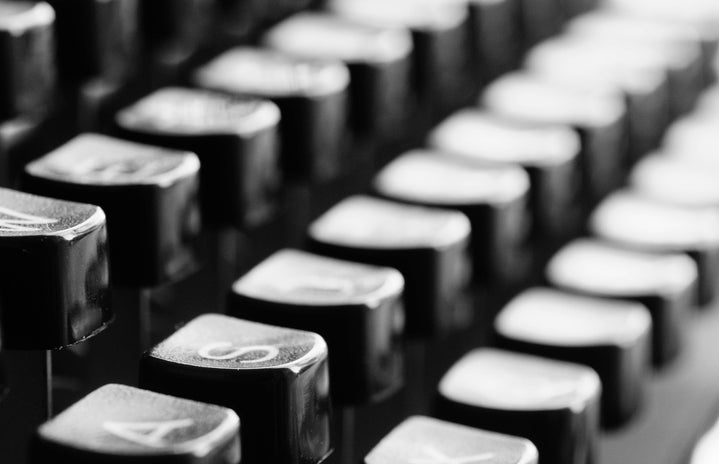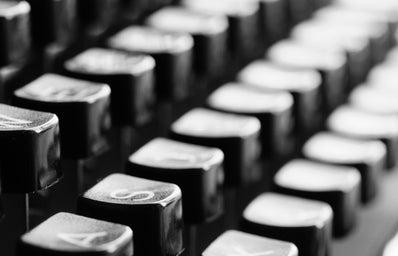Caroline Domingues, Her Campus Cásper Líbero University reporter, tells about the experience of interviewing Rodrigo Alvarez, an international correspondent for Globo Television and writer. She went to Livraria Cultura to attend the launch of the new book written by the journalist.
Inspiration is what we need in our life. Due to that, everyone takes someone as an example to be followed. Rodrigo Alvarez is a model for many journalists. Nowadays, people want to live in a gorgeous city, with a glamorous life, having comfort and tranquility. In favor of communication, he left the big city Sao Paulo to live in Jerusalem, in the middle of the war, having as a view sadness and ruins. His human side makes all the difference when talking about the barbarity that falls on the region, the Israel – Palestine conflict.
Rodrigo has worked at Globo since 1996, first as an image editor. In 1999, he started working as a reporter. He was always there for the news, showing for the world his dedication to the profession. His first performance as an international correspondent was in 2006, in New York. The massacre in the University of Virginia, in April 2007 was the first big news coverage made by Rodrigo. He searches for authenticity. The elections in The United States in 2008 was the theme of his first book, for which he just talked with the common American citizens, not experts. After that, the theme chosen for the second book was the destruction in Haiti caused by the earthquake in 2010. Since 2013 he has been a war correspondent in the Middle East.
The last book published is Maria, the story of the life of the mother of God’s son. Rodrigo decided to write about her because of the lack of information about it in the Bible. In October, he came to Brazil just to publish his book and receive love of his admirers and readers. A big line was formed and each one was really anxious for the meeting. I was there to talk to him and to give prestige to his job.
Do you make a difference between Rodrigo, a writer, and Rodrigo, a journalist? One interferes in the performance of the other? The writing has the vision of both the writer and the journalist?
The way I see the world is only one, but the themes differ. As a writer, I tell different stories from the ones I tell on TV. The style changes a lot, too. The writer was born before the journalist, because when I was 14 I started writing poetry and short stories; the writer influenced the journalist first; but now the journalist teaches the writer. After living too many professional experiences that just the journalism provides me I felt ready to write something broader.
Do you believe in a social role of journalists? Which would it be?
Yes. Inform correctly. This in itself is a big contribution to society – more so when a number blogs and sites come up and they mix political propaganda with news.
In your point of view, the boldness is the principal instrument for a good journalist?
Boldness, curiosity and empathy for the “characters” with the story are the principal instruments on the examination news gathering and recording. Precision, lightness and style are the principal instruments on the texts.
In 2000 you made a report about the Silicon Valley. Both the report and the book Maria, were your own bold idea. To which extent must the journalist insist on his own ideas, on independent projects?
If you don’t follow your own path, no one will do it for you. It is necessary to have ideas, to be prepared in the best way and execute them.
You made big reports alone, without a big team-work. In which way does the technology, the digital media contribute to a more independent work?
Technology made it possible to be a less invasive reporter that disturbs less the course of the story I am telling. Small cameras, “team” of two people or just a reporter, working on his own with a camera bring better testimonials and more unvarnished realities than big and invasive cameras and team-work.
Being an international correspondent changed your performance as a reporter? How?
Experience. Knowledge of the world. Knowledge of others. We need to understand that our point of view is just one more. A reporter needs to meet all kinds of people from different places. I understand that the reporter needs to be human, first of all, and to really know the human being is the best beginning.
Your vision of the humanity and the profession changed when you came across thousands of dead people in Haiti and thousands of dead people in the Israel – Palestine conflict?
It is interesting you talk about humanity, because it was exactly what I was thinking. Humanity in its broadest meaning is what moves me. Look at the world from the human point of view, with love for the human being. Haiti, Middle East, Brazil… are teachings that I accumulate.
In which way being a correspondent in the Middle East following closely the Israel – Palestine conflict had interfered in the elaboration of the book Maria?
The presence in the historical places was decisive for the book to take the course it had taken. I think it will probably be impossible to make a good book at a distance, knowing Jerusalem over the Internet.
The book Maria has been written in a way that can be read by everybody, regardless their religions. Do you believe that knowledge of several religions is a step to a more tolerant humanity?
To know and like the other, in my point of view, is the key. Like, mainly. When a reporter likes the character he makes a better interview. When the human being likes the other (he does not need to love, but have to look with affection), he is more capable of understanding him; and the understanding leads naturally to tolerance.
You said in an interview that the book brings together traditions, speculations about a character of big importance. Being unproven information, did it make the writing more difficult?
Without proof of most of what has been said over two thousand years, it has become impossible to make a unique and definitive story. But it didn’t make the writing difficult. It made me follow another style, inconclusive, but in my point of view equally delightful, allowing the reader to choose the way and the end that they most identify with.
Which were the difficulties in examination?
Dealing with two thousand years of documents gave me a lot of work.
“Understanding Rodrigo’s thoughts, the way he works and the human way he threats the human being give us the dimension of the value of his work for journalism and for humanity.”

